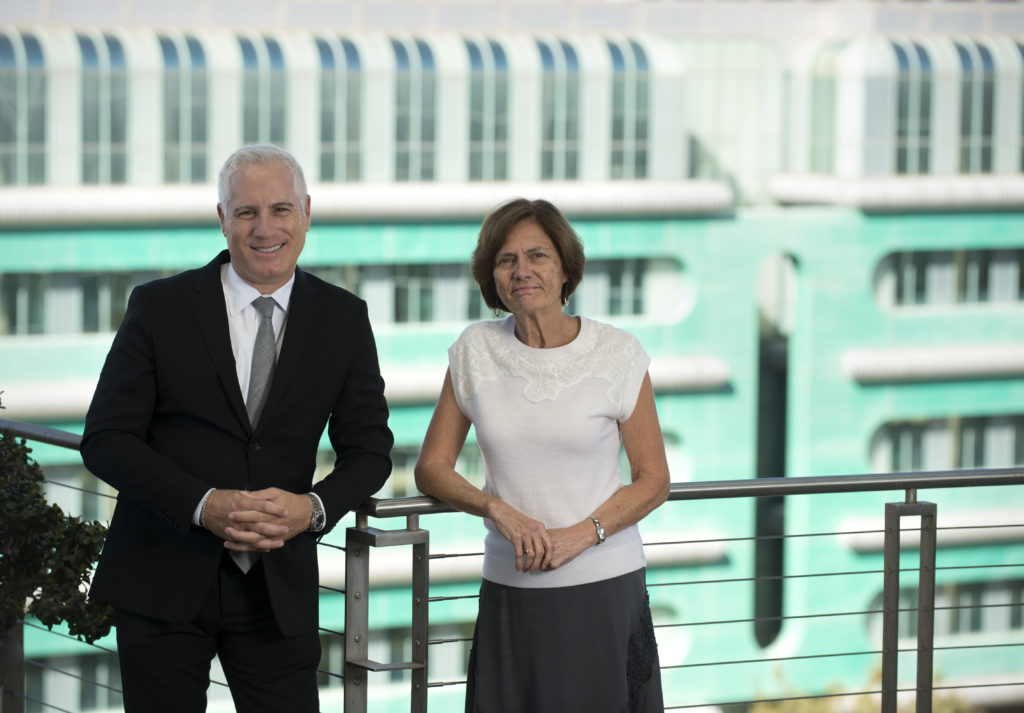Genetically engineered model could boost anti-dementia drug research

Andrea Tenner, UCI professor of molecular biology & biochemistry, and Frank LaFerla, dean of UCI’s Francisco J. Ayala School of Biological Sciences, will lead an effort to create a mouse that more closely mirrors human Alzheimer’s. Steve Zylius/UCI
Press Release – Irvine, Calif., Nov. 30, 2017 – A proposal to humanize several mouse genes for research into Alzheimer’s disease has spurred the National Institute on Aging to award $11.35 million to the University of California, Irvine.
“Over the last two decades, the search for new Alzheimer’s drugs has been stymied, in part because it’s now clear that animal test subjects don’t fully mirror enough of the major features of the disease,” said Andrea Tenner, UCI professor of molecular biology & biochemistry. “This project could reshape the fight against Alzheimer’s.”
Currently, scientists investigating anti-dementia medications must use mice that are bred to have a rare, aggressive form of Alzheimer’s, one that accounts for less than 2 percent of human cases. UCI, which is nationally known for producing specialized research mice, will employ sophisticated genetic recombination methods to engineer a better mouse, replacing rodent DNA sequences with human DNA strands linked to the most common type of Alzheimer’s, called sporadic Alzheimer’s disease.
“The new mouse will more accurately mimic human Alzheimer’s conditions, enabling superior testing of therapies designed to slow or prevent the disease,” said Frank LaFerla, dean of UCI’s Francisco J. Ayala School of Biological Sciences and a renowned Alzheimer’s expert. His previous work includes creating a “triple transgenic” mouse model that developed the same brain plaques and tangles found in human Alzheimer’s patients, a breakthrough that provided researchers with a living laboratory for understanding the behavioral, physiological and biological processes of the disease.
LaFerla and Tenner will lead a team building on a “base model” mouse that harbors a humanized Alzheimer’s-related gene – an endeavor they began in 2010 – and gradually humanizing other key genes. As part of the prestigious NIA grant, the UCI team will work together closely with Indiana University and Jackson Laboratory researchers to add various genetic characteristics associated with Alzheimer’s to the “next-generation mouse” and eventually make it available to scientists around the world.
The UCI group also includes professor of developmental & cell biology Grant MacGregor, associate professor of developmental & cell biology Ali Mortazavi, associate professor of neurobiology & behavior Kim Green, Francisco J. Ayala Chair in Neurobiology & Behavior Marcelo Wood and assistant researcher David Baglietto-Vargas.






